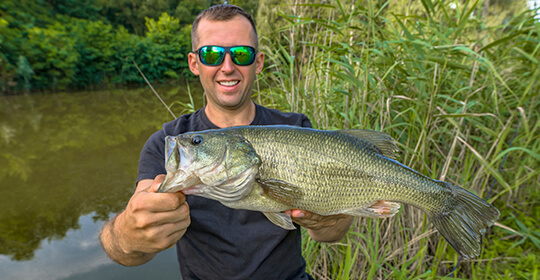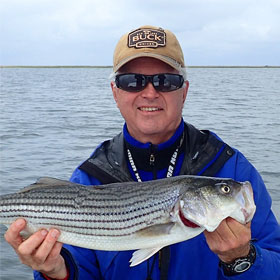10 Easy Ways to Conserve Largemouth Bass While Fishing
By Ken Schultz
Jun 14, 2024
Largemouth bass anglers can use these catch and release measures to aid conservation of this iconic species and keep bass numbers in good shape
For a long time largemouth bass have been the most popularly sought fish in America. That’s due to their widespread availability, pugnacious nature, susceptibility to artificial lures, cover and structure habitation, and occasional acrobatics when hooked.
But popularity equates with attention, and therefore fishing pressure, and there was a time when bass populations in many places were doing poorly. More focused fisheries management, better and stricter regulations, and greater awareness of catch and release principles have helped keep bass populations in good stead in most waters, so bass conservation should be top-of-mind for all anglers.
Today, many people who avidly pursue largemouth bass would no more think of keeping and eating one than of using dynamite as a fishing tool. And while it’s alright to keep and eat bass on occasion in accordance with local regulations, it’s important to make sure that you’re following best practices when it comes to landing, handling, and releasing the largemouth bass that you do catch. So here are ten easy ways to conserve largemouth bass while fishing.

1. Hold them by the lip. Because bass have a large mouth and minor teeth, it’s easy to immobilize them by firmly placing your thumb over the lower jaw while unhooking. Do not hold a bass by squeezing its body, putting your fingers under its gill covers, or touching the gills or eyes.
2. Wet your hands before touching. This helps minimize the chance of removing the protective coating and incurring an infection.
3. Hold it horizontally with both hands for a photo. If you must take a photo, place one (wet) hand over the lower jaw and the other hand under the belly for support. Do not hang a heavy fish vertically if you intend to release it.
4. Unhook it in the water if possible. It’s always best to keep a bass in the water when unhooking it. Grab it by the lower jaw with one hand, and use long-nosed pliers in your other hand to remove the hook.
5. Don’t let it flop around. Do your best to make sure that a freshly caught largemouth bass doesn’t fall onto the boat floor or the ground and flop furiously around, which can remove some of the mucous coating on the fish and make it more susceptible to injury or infection.
6. Consider single-hook lures or barbless hooks. When the fishing is fast and there are lots to be caught, pinching the barbs down on a hook, or switching to lures with a single hook, will help to minimize incidental injury to fish.
7. Use lures instead of natural bait. Bait hooks are more likely than lure hooks to go deep into a bass’s gullet, and maybe its stomach. Deep hooks are harder to remove and more likely to incur damage, especially bleeding.
8. Play it quickly. It’s best to bring a fish to be released in quickly to minimize stress and ensure an unharmed release. This is especially important for large specimens and in very warm water.
9. Use appropriate tackle. Bass inhabit many object-filled waters. In some places, especially around heavy cover, using light tackle is simply inappropriate because it will result in a fish being played too long (causing stress), or a fish breaking free with a lure in its mouth.
10. Take care to revive a stressed bass. Largemouth bass are fairly hardy, but if a fish is struggling to swim away after being unhooked, hold it in the water by the lower jaw and move your hand forward in a circular or figure-eight pattern to get oxygenated water through its gills to revive it. Take as much time as necessary to allow it to swim off under its own power without turning belly up.









